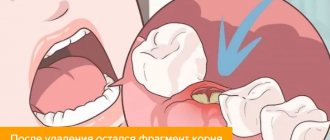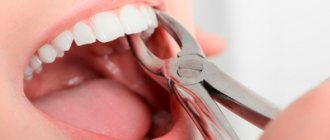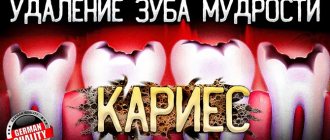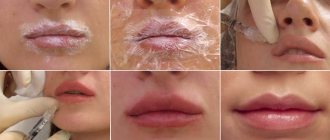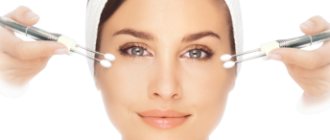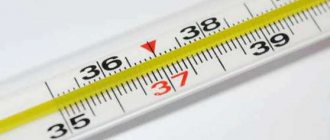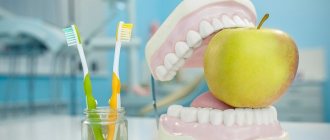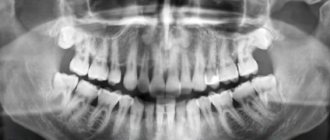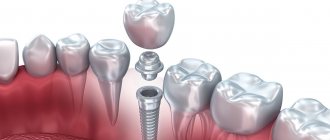Quite a lot of patients who smoke are interested in the question of whether it is possible to start smoking after tooth extraction . Most often, wisdom tooth removal requires creating the right conditions for rapid wound healing. Proper oral care during this period will prevent the exacerbation of pain and the development of various complications. Many patients experience real stress during the procedure and consider a cigarette to help calm their nerves. You can smoke after tooth extraction, however, it is important to follow several rules that will minimize the likelihood of developing an exacerbation.
The effect of tobacco smoke on implants
To understand how smoking and dental implantation are combined, you need to find out what the negative effects of nicotine and tobacco tar on the oral cavity are.
Firstly, every time smokers inhale tobacco smoke through the mouth, periodontal tissues find themselves “in the line of fire”, since they are exposed to all the harmful substances at once. The smoking process itself burns the mucous membrane, thereby striking the beneficial microflora and provoking the development of inflammation.
Secondly, nicotine and tobacco tars have not only a local, but also a systemic toxic effect, as a result of which the smoker’s tissues are less well supplied with oxygen and nutrients.
If the implants themselves are made of reliable material and deeply fixed, tobacco smoke will not destroy them. However, it does not allow the body to cope with the implantation of artificial teeth into the bone and recovery after surgery.
Due to problems with regeneration, smokers are limited in their choice of surgery. For example, they cannot do one-step or one-stage dental implantation. In any, even the most virtuosic performance, surgery is stressful for the body. Violation of the integrity of the gums, insertion of foreign objects into the bone - all this requires time and effort to recover. Smoking during implantation interferes with the healing process, it does not even allow maintaining hygiene at the proper level. After all, if hot smoke regularly enters the mouth, tobacco tar forms a plaque, and the mucous membrane is constantly dry, then harmful bacteria multiply in such conditions almost unhindered.
The systemic effect of nicotine on the body also interferes with recovery. Even high-quality orthopedic products have little chance of healing with damaged bone in a short time, given its poor blood supply and weakened immunity. And heavy smokers almost always have these problems.
The installation of classical implants is also excluded due to the osseointegration zone close to the surface. If the patient does not give up the bad habit, then regular burns of the gums and the proliferation of pathogenic bacteria on the mucous membrane will soon lead to peri-implantitis. This is the name for inflammation of the bone at the site of implantation of the artificial root until it softens. Therefore, smoking during implantation often leads to rejection, and the destructive process itself is quite painful.
Another problem is that the patient may require osteoplasty before implantation. This usually happens when the bone of the upper jaw under the maxillary sinus becomes thinner—in this case, a sinus lift is performed. But in other places, it is often necessary to build up bone tissue before inserting a titanium rod into it, and in a smoking patient there is a high probability of rejection of the transplanted bone material.
Summary -
- It is very good if you choose the right type of implant with an ultra-hydrophilic surface. Ideally, even with a surface on which phosphorus molecules or fluorine ions are applied.
- It is very good if you have chosen the correct surgical technique for installing the implant. We are talking about a two-stage classical implantation technique when installing a classic (crestal) type of implant, or about a basal implantation technique.
- It is very good if you reduce the frequency of nicotine consumption several weeks before the operation and for 5-8 weeks after it, and even better, do not smoke at all during this time.
Important: But that's not all you need to know.
You must understand that if you continue to smoke after the implant has been implanted into the bone, then you will encounter the problem of accelerated bone atrophy around the neck of the implant (typical for classic-type implants). This means that over time your gum height will decrease and the metal surface of the implant will be exposed (Fig. 9). The latter circumstance will make the aesthetics almost unacceptable if we are talking about the anterior group of teeth and at the same time you have a high smile (with exposure of the gingival margin). We hope that our article: Smoking and implantation was useful to you!
Sources:
1. Dental education of the author of the article, 2. Personal experience as an implant surgeon, 3. American Academy of Implant Dentistry (AAID), 4. National Library of Medicine (USA), 5. “Complications during dental implantation” (A.V. Vasiliev), 6. The National Center for Biotechnology Information (USA).
Possibility of implantation in a smoking patient
Smokers have a chance of successful implantation under the following conditions:
- Choosing the appropriate type of implants. To avoid the development of inflammation in the area of osseointegration, it is necessary that this area is as deep as possible. The deepest fixation in the jaw is provided by basal implants, which are implanted not into the upper part, but into the lower layer of the jawbone. This type of implant is also most suitable for thinning bone tissue.
- Strict smoking cessation for a certain period of time before and after surgery. Moreover, from any type of smoking, including electronic cigarettes.
- Compliance with all doctor's prescriptions. The patient will have to not only carefully monitor oral hygiene, but also follow other recommendations. That is, take prescribed antibiotics in the prescribed course, antihistamines, specific vitamins to support immunity, etc.
How to eliminate pain without harming your health
Pain and swelling in the first few days after surgery is normal. To relieve pain, you can take painkillers. These are non-narcotic analgesics, but the specific drug is prescribed by the doctor, taking into account the clinical picture and individual characteristics of the patient. Prescribing painkillers for yourself is strictly prohibited.
Additionally, you can apply a cold compress to your cheek - a heating pad with cold water or ice. But you can do this for no more than 10-15 minutes with a break of 40 minutes. You cannot hold the compress longer, so as not to provoke hypothermia and inflammation.
Rinsing the mouth with a special solution will help relieve or reduce pain; which drug to use should be checked with the specialist who performed the implantation.
To speed up the healing process, you can apply a healing ointment to the operated area.
The use of herbal infusions and decoctions is allowed, but only in consultation with the doctor, since individual components can cause allergies and other reactions. The compositions are used for rinsing the mouth along with antiseptic solutions.
Is it possible to smoke before implantation?
Before dental implantation, you should not smoke for a month to give the mucous membrane the opportunity to recover from burns and dryness and improve blood circulation. At this time, it is recommended to lead a healthy lifestyle, that is, it is advisable not to drink alcohol, eat right and take vitamins to strengthen the immune system. In addition, you need to carefully monitor your oral hygiene.
A month is the minimum period of abstinence from smoking before surgery. Ideally, the longer the better.
How to speed up the healing of a hole
Dentists always give the patient individual recommendations that must be followed. But there are general rules that apply to all patients:
- Do not smoke for at least two to three hours.
- Promptly remove the tampon soaked in antiseptic from the postoperative wound. If you forget to do this, the fabric will become a suitable breeding ground for bacteria.
- Do not touch the blood clot covering the wound. It cannot be picked or felt. The speed of recovery directly depends on the state of the clot.
- When rinsing, do not make intense movements that will help wash out the clot. You just need to put the medicinal solution in your mouth and carefully hold it on the side of the extracted tooth.
- Do not apply medications to the affected area that have not been prescribed by a doctor. Such amateur activities can lead to dangerous complications.
- In the first three days after extraction, do not take a hot bath or steam in a bathhouse or sauna.
- Do not eat until the anesthesia wears off. Otherwise, you may bite the tissue of your cheek or lip.
- Take only those medications prescribed by your dentist. Sometimes doctors decide to prescribe antibiotics - they must be taken strictly according to the specified regimen.
How the regeneration process will proceed depends not only on the actions of the dental surgeon, but also on the behavior of the patient. Remember this!
Is it possible to smoke after dental implantation? When is it possible?
The minimum period for quitting smoking after dental implantation is 1.5–2 months. It is necessary to endure it so that the wounds in the mouth heal and the gums tighten, tightly grasping the implants.
The most correct decision would be to quit smoking completely, because due to this habit the patient’s blood vessels, bones and mucous membranes will soon be “under attack” again. However, the most important thing is to maintain at least a two-month rehabilitation period after surgery to reduce the risk of peri-implantitis.
This rule also applies to users of electronic cigarettes, the vapor from which also contains nicotine and burns periodontal tissue when inhaled.
Indications and contraindications
Indications for fluoridation of teeth in dentistry:
- increased sensitivity of enamel, reaction to cold, hot, sour and sweet foods;
- susceptibility to caries disease, as a preventive measure for caries;
- after using braces and other orthopedic structures;
- lack of fluoride;
- after teeth enamel whitening.
Contraindications for the procedure when there is only harm from fluoridation:
- allergy to fluoride-containing drugs;
- excess fluoride in drinking water;
- fluorosis (change in tooth color due to oversaturation of fluoride from childhood).
Is it possible to smoke after implants have been implanted?
“You can, just be careful,” but it’s better not to smoke. To the facts already listed about the harmful effects of nicotine and tobacco tar on the immune system, blood circulation and mucous membrane, one more argument can be added - smoking after implantation accelerates the loss of bone tissue around the implants.
To be fair, it is worth noting that non-smokers’ bone loss also decreases, but two times slower than that of nicotine addicts. If the former lose a maximum of 0.1 mm per year, the latter lose 0.2 mm. These numbers may seem insignificant, but in fact the difference is significant. In any case, doctors reduce the guarantee for the operation of implants for smokers by 5–10 years.
Implantation recommendations for smokers
Not everyone is able to give up a bad habit and quit smoking. In any case, the doctor recommends eliminating tobacco consumption two weeks before installation of the implant and at least in the first month during the engraftment stage. If the patient is a heavy smoker, this fact must be taken into account and treatment adjusted. There are several recommendations that can minimize the harm of cigarettes and make treatment more predictable.
- It is recommended to install top systems with an advanced hydrophilic coating, which promotes the formation of bone tissue around the implant and accelerates osseointegration.
- Smokers are not recommended to carry out a one-stage implantation protocol, since in this case there is a high risk of implant rejection and the development of inflammation.
- Basal implantation. Basal implants are installed in deep layers of bone that are not subject to atrophy, which is a plus for a smoker. However, this method has its own nuances that must be taken into account.
- Smokers need more careful hygiene using an irrigator, and it is also recommended to make preventive visits to the doctor more often.
Smoking before and after the procedure
It should be honestly noted that smoking significantly reduces human immunity. In people who have had this bad habit for many years, fusion of the implant with the bone may not occur at all. The 3-4 weeks before surgery greatly influence the rehabilitation process. Try to keep smoking to a minimum during this period.
In the case of implant engraftment, the same first 3-4 weeks after the intervention are also of great importance. It is during this period that many smokers develop peri-implantitis. Remember that nicotine during this period is dangerous because it slows down regeneration and the process of osseointegration.
When should you cancel your visit?
If circumstances arise that prevent you from visiting the dentist at the scheduled time, you can cancel the visit and reschedule it for a later date. It is better to inform the doctor or administrator about this as soon as possible so that it is easier for them to adjust the patient’s appointment schedule.
Cancel your visit if:
- you become ill with ARVI, influenza, or any other infectious or viral disease that may be contagious or interfere with treatment;
- your herpes has worsened;
- the nose is very stuffy (for example, due to allergies), and the stuffiness is not relieved with medication;
- with any increase in body temperature;
- when you feel unwell associated with an increase or decrease in blood pressure.
Is it possible to do fluoridation at home?
The price of dental fluoridation in Moscow using the deep method will cost 2000-3000 rubles (all teeth), but you can do it yourself. Preparations for fluoridation at home are freely sold in pharmacies and specialized stores.
- Fluoride varnish
. Follow strictly the instructions, which indicate how and how many times to apply fluorine-containing varnish. - Therapeutic and prophylactic pastes and gels
. The composition should contain sodium fluoride, amino fluoride and other fluorides. We must remember that you cannot use such a paste for a long time so that there is no excess of fluoride in the body. Be sure to alternate with other types.
For effective fluoridation, it is better to consult with your dentist about choosing medications for home use. The result will be more lasting if you have professional teeth cleaning done beforehand to remove plaque and tartar.
Effect of fluoridation
Although tooth enamel contains less fluorine than calcium, it is simply necessary for the strength of the enamel. When fluoridating dentin, fluorine combines with tissue molecules and forms fluorapatite hydroxide, which is more resistant to acids. Namely, acids (acidic foods, waste products of bacteria in dental plaque) destroy tooth tissue, demineralization occurs, and micro- and macroelements that play an important role are washed out. Timely fluoridation of dentin prevents this process.
After the procedure:
- enamel becomes stronger;
- natural shine appears;
- susceptibility to caries is minimized;
- Calcium and phosphorus are better absorbed by dental tissue and retained there;
- enamel sensitivity decreases.
Risk
The implantation of foreign structures into the tissues of the human body is a huge stress. At this time, you need to see a doctor and follow his recommendations. The human body is such a complex mechanism that it can reject an implant even for no apparent reason, not to mention clear contraindications. One of them is the use of tobacco products. People with such a bad habit find it difficult to endure even such a simple intervention as tooth extraction. They develop dry socket syndrome, which causes fever and pain in the operated area. Speaking of more serious interventions, the consequences will also be more significant. The risk of dental implant failure in a smoker is many times higher. Moreover, a pattern was derived that relates the number of products used and the likelihood of problems with engraftment. Smokers are 2 times more likely to experience rejection than people who do not have this habit. However, do not be discouraged. Tobacco use and dental implants are not completely mutually exclusive.
